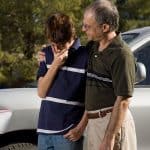
Parenting Priorities
A family crisis is disorienting. That's what Chris and Michelle Groff discovered when their teenage son was caught breaking into a car. They began to realize that their parenting style was going to have to change if they were going to help him. The Groffs share what they learned while their son was in rehab, and how they used this information to start their own ministry helping other parents.
Show Notes
About the Host
About the Guest
-
A family crisis is disorienting. That's what Chris and Michelle Groff discovered when their teenage son was caught breaking into a car. They began to realize that their parenting style was going to have to change if they were going to help him. The Groffs share what they learned while their son was in rehab, and how they used this information to start their own ministry helping other parents.
-
Dave and Ann Wilson
Dave and Ann Wilson are hosts of FamilyLife Today®, FamilyLife’s nationally-syndicated radio program. Dave and Ann have been married for more than 38 years and have spent the last 33 teaching and mentoring couples and parents across the country. They have been featured speakers at FamilyLife’s Weekend to Remember® marriage getaway since 1993 and have also hosted their own marriage conferences across the country. Cofounders of Kensington Church—a national, multicampus church that hosts more than 14,000 visitors every weekend—the Wilsons are the creative force behind DVD teaching series Rock Your Marriage and The Survival Guide To Parenting, as well as authors of the recently released book Vertical Marriage (Zondervan, 2019). Dave is a graduate of the International School of Theology, where he received a Master of Divinity degree. A Ball State University Hall of Fame quarterback, Dave served the Detroit Lions as chaplain for 33 years. Ann attended the University of Kentucky. She has been active alongside Dave in ministry as a speaker, writer, small-group leader, and mentor to countless wives of professional athletes. The Wilsons live in the Detroit area. They have three grown sons, CJ, Austin, and Cody, three daughters-in-law, and a growing number of grandchildren.
-

Chris Groff
Chris was the Executive Director of Parenting by Design for 10 years, a co-author of its content and materials, and a co-leader of the Parenting by Design seminars. Parenting by Design was a faith-based, nonprofit organization devoted to providing biblical parenting education through live seminars, DVD’s and online learning, as well as through CD’s, downloadable audios, newsletters, books, blogs, and other social media content. Chris and his wife, Michelle, felt called to establish Parent...more
Michelle Groff
Michelle was a co-founder of Parenting by Design with her husband, Chris, and Lee Long. She received her BA from Texas Christian University and her Masters degree in Biblical Counseling from Dallas Theological Seminary. She was a co-presenter and co-author of the Parenting by Design content as well. Currently she is a Licensed Professional Counselor, specializing in anxiety, OCD, and all sorts of trauma. Chris and his wife, Michelle, felt called to establish Parenting by Design with counselo...more
Chris and Michelle Groff share what they learned while their son was in rehab, and how they used this information to start their own ministry helping other parents.
Bob: Chris Groff remembers when he began to realize that being a Christian parent meant more than just making sure your kids were with you in church on Sunday.
Chris: The difference for me, I think, was—when we started exploring how God parents us, we learned, first, how to be a better child of God; and then, we were able to turn to our kids and say, “We’re going to parent them the way we have now been learning that God parents us.” It was a sea change—it was remarkable!
Bob: This is FamilyLife Today for Tuesday, February 23rd. Our host is the President of FamilyLife®, Dennis Rainey, and I’m Bob Lepine. Chris and Michelle Groff join us today to talk about the transformation that took place in their family when they decided to be more than just good Christian parents. We’ll talk about that today. Stay tuned.
1:00
And welcome to FamilyLife Today. Thanks for joining us. You know, when we, as moms and dads, get those moments in life when something is wrong with one of our kids—whether it’s something that they brought on themselves or something that happened to them—those are reorienting times in a marriage and in a family. You’d better have a good foundation established if you’re going to weather those times well.
Dennis: I’m going to tell you—even to the strongest followers of Christ—even to people who have got a history of being in the Bible, growing out of the Scriptures, growing in community with other people—I would change one word. They are not reorienting—
2:00
—initially, they are disorienting.
Bob: Well, exactly.
Dennis: And I mean, if you are raising kids who are doing okay, all is well in the universe; but if one of them isn’t—I mean, you could have a dozen kids and if only one out of 12 is struggling—all the energy, all the resources, all the prayer go to that one lost sheep and in pursuit of that sheep to help them grow and come back to the fold.
Well, we’ve got a couple here with us who have experienced this. Chris and Michelle Groff join us on FamilyLife Today. Welcome back to the broadcast.
Chris: Thank you.
Dennis: They have written a book called Parenting by Design. Chris is a graduate of The Dallas Theological Seminary—Bob, take note of that—
Bob: The.
Dennis: —The Dallas Theological Seminary. [Laughter] Michelle is a counselor by trade, and they have two sons—been married 33 years. And we talked earlier about how you all were awakened at 2:30 in the morning with the news that your son had been high on drugs, had stolen a kid’s stereo, and was running from the police.
3:00
Bob: This was your son, Bob, who was 16 at the time. And this uncovered for you guys what had been a four-year period, where he’d been using drugs—he’d been smoking marijuana / he’d graduated, at this point, to cocaine. We talk about it being disorienting and reorienting. That night, a lot of life got put on hold because you had one big issue in front of you; didn’t you, Chris?
Chris: Oh, absolutely. I mean—and when I picked him up that night, it was three in the morning, at this point. We drive to where we know the police are so we can have him do the mea culpa thing. But when we go back to the house, all these thoughts are flooding through your mind like: “What happened? How did this happen? How did we get to this point?”
Then, over a two-month period, we kind of just started to put the pieces together and began to realize—
4:00
—and I think the scariest time was at the end of that two-month period, where we’re getting ready to send him to a 10-month adolescent treatment program. As we’re driving in the car to get on an airplane to go to Colorado, you look in his eyes; and there was nothing there. Bob was dead to us / to the world. He didn’t care what happened to him. The fact that he had hit that low / that bottom was terrifying.
Dennis: It’s why they call it an intervention.
Chris: Yes.
Dennis: If you don’t intervene, they will destroy themselves.
Bob: And Michelle, you’re a counselor. As you look back on that time with your son, was he angry, was he confused, was he depressed? What was going on?
Michelle: Well, I think, we started off with more Christian goals. But over the years, it was just compromise and then a compromise; and next thing you know, you realize, “Our compass isn’t in the right direction.”
5:00
This was all, I think, part of God’s plan to help us see that our compass was way off. I think, in terms of what brought Bob to that point—I think we were modeling an example of what success was that caused him a ton of anxiety.
Bob: So, Chris—how did the realization that your compass had gotten pointed in the wrong direction—did that happen gradually for you guys; or did you look at each other and go: “Oh, man! We see how this happened”?
Chris: No, it was a gradual process. We dropped him off at the treatment program in Colorado. We went back up a few months later for parenting lessons—they were teaching parent classes. I think—
Michelle: —which is so humiliating and humbling because you’re like, “I’m a good parent!”—well, you know.
Bob: Yes; right.
Chris: So, we’re sitting in this room with pairs of other terrified parents or single parents that are all in the same boat.
6:00
I think that was the time that it felt like God sat between us and put His arm around each shoulder and said, “I’ve got this, but I’m going to need you guys to do some work.” We didn’t imagine what that meant / what that looked like until we went back in the spring.
By that point, the idea of parenting by design was kind of starting to form in our heads; but it was the process of getting ready for that where I think we started to see where the compass could be off and where it should be. Maybe, that was the part that was missing—is, maybe, we knew the compass was off because we had a terrible result; but we didn’t know where it should be. Going to those family weekends and just hearing the common sense perspective of what—how God parents us and how we should, then, follow that example, helped us to understand where’d we gone off course.
Dennis: Michelle, at that point, you had not yet started your educational work toward becoming a counselor.
7:00
You indicate this event moved you in that direction / expedited that. But you, Chris—I mean, you had been a very successful attorney/businessman. When you see a family come off the wheels—it’s not that the kids don’t have their own responsibility—they do / they are expected to do what’s right; they have their own choices—but in this case, you weren’t really in the game. Something else had your head and your heart. As, really, the leader of this family, you were in trouble.
Chris: I was in trouble. The way I portray it is—in our social circle, there are a whole bunch of treadmills lined up. Those treadmills are being powered by money, and vacations, and cars, and things like that. As your friends achieve some certain level of success—very loaded word—what happens is—they turn the speed of your treadmill up.
8:00
You’re not actually even controlling the speed. You get on that treadmill—you can’t get off for family, for marriage, for anything else because you’re so focused on achieving this success goal—that you become single-minded. It’s even worse when you’re getting affirmation back—when you say, “Well, gosh, you’re really good at that!”
Dennis: You’re propping up an image at some point.
Chris: You’re propping up this façade of success. It meant that I was spending a lot more time on work. I was spending a lot more time on patching the holes in the façade than I was on talking to my kids.
Bob: So, with all of this—let me jump back ahead now—your son is in rehab. You’ve had a couple of parenting weekends, where you’ve gone up to visit with him. The lights are starting to come on that, “Huh, maybe, we haven’t been doing this the way we ought to; but he’s 16, and the other one is heading off to college,”—it’s kind of like: “Do you just say:
9:00
—‘Oh, well! I guess we blew that part of our lives’?” What do you do?
Michelle: Well, for me, that first parent weekend was a real spiritual experience. I really felt—maybe, even for the first time—the relational side of Christianity versus, in the past, just kind of the theory of it. The truth that they were speaking about raising kids resonated to where I just wanted to come back and tell my friends what I was learning. I most particularly, though, felt a sense that God started charting our course in a different direction.
Dennis: Well, it had to be a bit of a wakeup call—I mean, the 60 days of finding out what your son was into / then, ten months—the heartache and the realization that the train had come off the tracks.
10:00
At that point, you indicate in your book you made a bargain with God. Did that occur at the end of that first weekend or the second weekend?
Michelle: The second weekend.
Dennis: Well, explain to our listeners what the bargain / kind of what the contract looked like between you and God at that point.
Michelle: I realized that I’d drifted away, and I realized that He was calling me back. I felt like He was calling us to use our story. I thought: “Okay, God, I’m willing to—I’m willing to show up, but You’re going to have to do all of the other work. You’re going to have to figure this out. But you know what? I will help You out, if You need me.” [Laughter]
Bob: Chris, were you having any of this spiritual awakening that Michelle’s talking about in your life?
Chris: Well, I think this is where God had been preparing for a long time because the entrepreneurial side of what I’d been doing since I quit practicing law was starting and working with small businesses.
11:00
When Michelle started proposing the idea that we both had, but she probably put it into words that I could see that: “Wow, there is some potential here for a ministry. I got to work”; you know? I’m like: “If we’re going to do this, then, how would we do that?” and “What would it look like?” That energized me—an idea that we could change this path for our kids. This is one thing I would tell parents: “It’s never too late to get started on parenting,” because our kids were way down the road when we made an abrupt 180 turn.
Dennis: I’m glad you said that because, a number of years ago, we did a parenting conference—we’re about to do somethings with that conference for our listeners and for people in churches across the country that we’ll be talking about in the future—but when we did that conference, parents who were raising teenagers didn’t seem to want to come because, from my vantage point and interacting with some of those who chose not to come, they felt like the deal was over by the time they were in adolescence—
12:00
—that two or three more years of attempting something wouldn’t make all that much difference.
And I’m glad you made that point because it is never too late to do what’s right. It’s never too late to call your kids back to Jesus Christ and to the Scriptures. In fact, you can lead them in the right direction.
Chris: And that’s what—they’re craving that. If they haven’t had that—like ours hadn’t—the idea that you can be relationally bonded with them—that you care what they think / that you want to know them—not just know about them—but know them is—that’s built into us. I mean, it’s not something that you can give up on. I think the joy that we got from connecting with our kids, maybe, for the first time is so profound that I want that for other parents. That’s one of the reasons for Parenting by Design.
Dennis: So, Bob graduated May of 2004, and then, lived happily ever after—after that point; right?
13:00
Chris: Wrong! And that’s the part—oh, gosh, Dennis—you know, his junior year was spent in rehab in Colorado. He came back for his senior year—went to high school in Fort Worth / finished his senior year—went to college the next year / chose Boulder, Colorado, which has a reputation for being a little wilder. After two weeks, he said: “Dad, I can’t stay here. I can smell marijuana coming under my door every night.”
So, he—we said—at this point, we’re practicing Parenting by Design principles all the way. We said: “Great! What are you going to do? Can you work it out?” And so, he got with friends and schools and transferred to Austin.
Michelle: Not a lot better than—
Bob: I was just going to say—[Laughter]
Michelle: Okay, so, we’re in the remedial group.
Dennis: It’s a conservative bastion; right? [Laughter]
Bob: Boulder might have been a stretch in the first place; but when he says, “I’m going to Austin,” it’s kind of like, “Can’t we pick another city; huh?”
14:00
Chris: They at least have churches in the city.
Bob: Well, that’s true. But it sounds like he stayed clean/sober for the two-and-a-half years from the end of the treatment until he’s down at Austin; is that right—as far as you know?
Chris: I think, for the most part, he was—until college. Then, he joined a fraternity in Austin. During a pledge-ship event, he broke his wrist. In the emergency room, they gave him—well, in his case—Vicodin®. He said: “I took two of those per the instructions, and I liked it. I really liked it.” That started him back on the track, and—
Dennis: He started stealing again.
Chris: He—well, he—yes. He—it got pretty bad because, once you cross the line into opiates, it’s—
Dennis: It’s expensive.
Chris: —it’s expensive.
Bob: You said that you had—by this time, you were starting to practice what you referred to as Parenting by Design principles. We want to spend some time kind of getting into what those principles are and how things got reoriented for you.
15:00
But I think it’s important to say that, more than the principles, your son’s experience in rehab and what happened out of there—there was a spiritual course correction for both of you so that, by the time there was a relapse, you were in a different place, spiritually; weren’t you?
Michelle: Absolutely. I’m glad you bring that up because it started with us really having to come before God and be willing to look at what gives us value and worth: “Where is our identity?” I don’t know that I ever had really been willing to look really deep into: “What are those foundational things that happened throughout my life that had been a filter for what I was really believing gave me value and worth?” It was kind of painful, frankly; because I realized how much of the messages that I’d received, growing up, and that I’d bought into were leaking through in ways that I didn’t even understand.
16:00
And, then, I was passing those messages on to my kids.
You’re right—it started to change our whole orientation. So, we were in a different place when this relapse happened.
Bob: Chris, describe how you would say life changed for you from the time Bob graduated from rehab to his relapse.
Chris: I think it was my focus, as Michelle describes. Without really knowing it, I was focused on satisfying this cultural norm. I looked at success from the cultural, secular perspective—oh, I spiritualized it and added Christian terms to it—but I was looking at life that way and I was parenting that way. I threw money at problems; or I’d set out: “Here’s what I need you to do—these five things—and you’ve got to do them in order and you’ve got to do them exactly right; and then, we’ll be okay”; right?
17:00
“We’ll check those boxes.”
And the difference for me, I think, was when we started exploring how God parents us. We learned, first, how to be a better child of God; and then, we were able to turn to our kids and say, “We’re going to parent them the way we have, now, been learning that God parents us.” It was remarkably different. Suddenly, we could have conversations with our kids. Suddenly, I cared what they were thinking / what they were feeling. I wanted to hear the hard stuff. I didn’t want to avoid it—you know?—and paper over it. It was a sea change—it was remarkable!
Dennis: What a lot of people don’t know is that 80 percent of all people who go through rehab relapse. You gave Bob the choice that I found, frankly, was very wise and probably saved him from going through rehab multiple times in his life.
18:00
Explain what that was.
Chris: Well, when the problem cropped up—when we discovered that he was addicted to opiates and heroine, in particular—which is just terrifying for a parent / the idea that to even say the word is just kind of scary—but when that happened, we realized that we were at the crux of his life. It could go two ways.
And so tearfully/prayerfully, we posed the two options to him: “You can keep pursuing that life. If you do, we’re calling the police; and we’re going to have you prosecuted,”—because, by that point, money was missing. It was at a felony level, and he was going to be gone for a while—or “You can go to a rehab that’s not the nicest place in the world, and it’s a long-term thing. These are your options. It’s rehab or prison.”
19:00
Dennis: And the rehab that you gave him the option of going to was one where he had to work 48 hours a week.
Chris: Yes. It was—
Dennis: Not a free ride.
Chris: —it was not a free ride. We paid $175 for 18 months of treatment there. The rest of the money came from Bob’s sweat. They would—after the first 30 days of orientation, they would line them out in manual labor jobs. He happened to work mostly in a furniture factory—just toting pieces of furniture back and forth for 48 hours a week—every day.
Dennis: And so, how is Bob today?
Chris: He’s doing well, and he’s battling against addiction every day. He has found that the best way to do that is community—that addiction has a way of turning your brain off in a way that you don’t think very clearly, and choices become much more difficult / good choices. And so, he’s now engaged, heavily, in a community of people who will help him when he finds himself in trouble.
20:00
It’s all up to him, at this point—that when he feels the addictive urge, he calls a sponsor.
Michelle: He told me that in the same way, if his walk with God—he compromised it bit by bit—and he said, “If I had been in the same place, that would not have allowed that to go so far.” I think the take-away for him is just realizing his very life depends on his walk with God.
Dennis: Yes; no doubt about it. And ours does, too, whether we realize it or not.
Michelle: —whether we realize it or not.
Dennis: And what I’d say to the parents, who have been listening to the broadcast today—there are really two applications—one, it’s never too late to do what’s right and to intercept your child and to call them back to Christ and to the Scriptures; and secondly, in the process, you need to take an inventory of your life and make sure you are in the right fight and you’re not bowing to an idol.
21:00
Bob: Well, and I think the point that you guys are making about community is important, too—not just for parents who have kids that are facing serious challenges like your son was facing—but all of us need community. We were made for community. It’s how we’re designed to live and how we are to live out our lives as followers of Jesus—in community with other believers.
I’m just thinking of how helpful it would be for a lot of parents if they would regularly get together with four or five other couples—who are at the same stage of life, with kids the same age—and start off by going through together the book that you guys have written: Parenting by Design: Discovering God’s Original Design for Your Family. That’s just a great place to start—take a chapter every time you get together and talk about that chapter. I think you’ll find it brings hope and it brings help.
22:00
We’ve got copies of the book, Parenting by Design, in our FamilyLife Today Resource Center. You can order online at FamilyLifeToday.com; or you can call 1-800-“F” as in family, “L” as in life, and then the word, “TODAY.” Get your copy of the book, Parenting by Design, by Chris and Michelle Groff.
And I talk about how getting together with other parents can bring you both help and hope—that’s what we’re committed to, here at FamilyLife. We want to provide practical biblical help and hope for your marriage and for your family—on this daily program, on our website at FamilyLifeToday.com, at our events, through our resources. Our goal is to effectively develop godly marriages and families.
And we’ve been about the same thing for 40 years now. This year is our 40th anniversary. As we’ve been saying all year, it’s really not our anniversary that we want to draw attention to and focus on—it’s your anniversary because we’re the Proud Sponsor of Anniversaries.
23:00
In fact, we have some friends, who live in Pennsylvania, who are celebrating their eighth anniversary today—Matt Merrit and Denise Chaborlain celebrating eight years together as husband and wife. Glad to have you guys as listeners. And I’ll tell you what—they’ve been to five Weekend to Remember® marriage getaways. So, they’re staying focused on the right stuff.
And quickly, we need to say, “Thank you,” to those of you who make all that we do, here at FamilyLife, possible—and have done that for 40 years. We are listener-supported. So, the funds needed to make FamilyLife Today happen are funds that you provide when you make a donation or when you join us as a Legacy Partner. Of course, this month, we are hoping to add 20 new Legacy Partners in every state where FamilyLife Today is heard. How about you? Could you be one of the families to join us and become a new Legacy Partner in your community?—help keep FamilyLife Today on the air? Go to FamilyLifeToday.com and click the button that says, “DONATE,” to find out how to become a Legacy Partner; or call us at 1-800-FL-TODAY—
24:00
—and say, “I’m interested in giving monthly and becoming a Legacy Partner.” We’ll get you set up over the phone.
And we hope you can join us back tomorrow. We’re going to continue to talk with Chris and Michelle Groff about the lessons that they learned in the midst of some challenges they faced as they were raising their teenage boys. I hope you can be back with us tomorrow for that.
I want to thank our engineer today, Keith Lynch, along with our entire broadcast production team. On behalf of our host, Dennis Rainey, I’m Bob Lepine. We will see you back next time for another edition of FamilyLife Today.
FamilyLife Today is a production of FamilyLife of Little Rock, Arkansas. Help for today. Hope for tomorrow.
We are so happy to provide these transcripts to you. However, there is a cost to produce them for our website. If you’ve benefited from the broadcast transcripts, would you consider donating today to help defray the costs?
Copyright © 2016 FamilyLife. All rights reserved.
1




